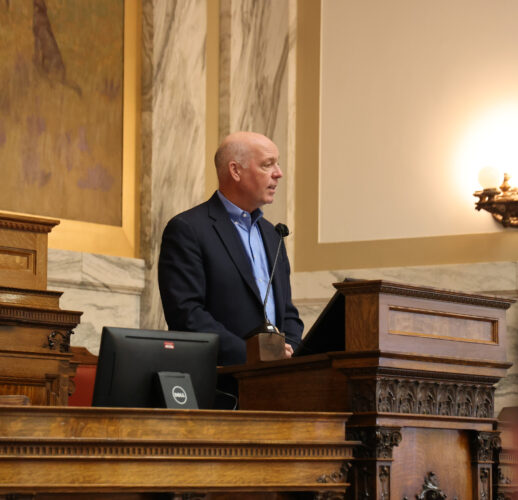Governor Greg Gianforte applauded the U.S. Supreme Court’s decision in United States v. Skrmetti, upholding Tennessee’s Youth Protection Act and reinforcing the right of states to restrict certain medical and surgical treatments for minors experiencing gender dysphoria. The ruling comes as Montana’s own Youth Health Protection Act faces legal challenges in state courts.
“Today, the U.S. Supreme Court issued a decisive ruling, siding with states seeking to protect minor children from invasive medical treatments that can permanently alter their healthy, developing bodies,” Gov. Gianforte said in a statement following the Court’s decision. “The Court’s majority opinion includes arguments we made in our brief, pointing out that many European countries have retreated from providing these permanent, life-altering, and experimental medical and surgical procedures.”
Montana joined several states in filing amicus briefs in support of Tennessee’s law, which was challenged by the Biden administration on grounds that it discriminated based on gender identity. The Supreme Court’s ruling effectively rejects that argument and upholds the state’s authority to regulate medical care for minors.
The case, United States v. Skrmetti, centered on a Tennessee law that prohibits doctors from providing gender transition-related surgeries or hormone therapies to individuals under 18. The Biden administration argued the law violated the Equal Protection Clause, but the Court’s majority held that states retain broad authority to regulate medical practices, especially when it comes to minors.
Gianforte’s support for the Tennessee law parallels his administration’s advocacy for Montana’s own Senate Bill 99, also known as the Youth Health Protection Act. The law, signed in 2023, prohibits certain gender transition treatments for minors. Legal challenges have delayed its implementation, but the governor remains confident the Supreme Court’s ruling will influence pending cases in Montana.
“In February, we filed a brief with the Montana Supreme Court defending this commonsense law and asking the Court to allow it to go into effect,” Gianforte said. “I hope judges will recognize this decision from the U.S. Supreme Court, uphold the law, and protect children across Montana.”
In his October 2024 brief submitted to the U.S. Supreme Court, Gianforte wrote, “Society has an interest in protecting its children because family is the building block of a free society… This interest is made legally tangible in the recognition of the States’ policy power to protect health and safety of its citizens, which necessarily includes children.”
Gianforte further emphasized a compassionate tone: “Children who struggle with gender identity deserve love, compassion, and respect. They deserve no ridicule, animus, or seclusion. They are entitled to protection, not exploitation.”
He also pointed to a global trend among countries re-evaluating such treatments for minors. “Tennessee, like Montana and other states, has adopted laws that prohibit certain medical treatments for minors… They join other more progressive countries, like Norway, Finland, Sweden, the Netherlands, the United Kingdom, and Denmark, which have likewise prohibited or restricted such treatments through either law or medical policy.”
As legal battles continue in Montana, Friday’s Supreme Court decision is expected to serve as a major precedent, potentially strengthening the state’s defense of its law.
“Montana joins Tennessee and other states in our effort to ensure the next generation has the ability to perform great feats, solve thorny problems, create things of great beauty, and persevere through any struggle,” Gianforte concluded.
By: BSH staff

